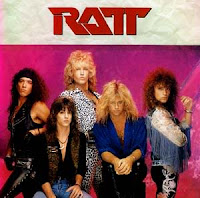
Katherine Eban, well-known author of Dangerous Doses, is back with another drug industry shocker called "Are generic drugs a bad bargain?"
The subtitle should get your attention: "All of us want cheaper medicine — but not if it costs us our health." (Cue scary music…)
What do you think? Responsible muckracking or irresponsible fearmongering?
Eban writes:
But a yearlong investigation by SELF — including more than 50 interviews and records leaked from one of the world's largest generic-drug companies, Ranbaxy Laboratories — raises questions about whether some new generics are as safe or effective as the brand names.
Eban focuses on the experiences of three women who claim to have had problems with generic drugs. (The plural of anecdote is data?) She also uses the problems at Ranbaxy to implicate the entire generic drug industry, the FDA, pharmacists, insurers, and just about anyone with scientific data that conflicts with the article's thesis.
I found the tone of the article to be unnecessarily sensationalistic and pejorative. She summarily dismisses any scientific evidence from peer-reviewed medical journals in favor of the comment board at the People's Pharmacy website. Example. (BTW, does anyone know more about the People's Pharmacy organization?)
Check out the snarky tone of this paragraph:
Anxious to cut costs, health insurers are stampeding to switch patients to drugs that are cheaper to make, test and ultimately buy because their manufacturers can piggyback on the research and marketing already done by brand-name-drug companies. Pharmacists in most states are also free to give patients whichever version of a drug is cheapest for them to supply, without telling the prescribing doctor; in some states, pharmacies are required to make this switch.
"stampeding"? "piggyback"? "without telling the prescribing doctor"?
And to make sure that SELF readers get the point:
Women who wouldn't dream of substituting Diet Pepsi for Diet Coke, simply because of the taste, eagerly swap vital medications, because the change can cut co-pays in half.
Last time that I checked, Diet Coke and Diet Pepsi had different ingredients, whereas generic drugs are chemically identical to branded drugs. Whatever.
FYI, Dangerous Doses started as an article in SELF magazine, so anyone with a vested interest in generic drugs should keep an eye on the anti-generics trend.











